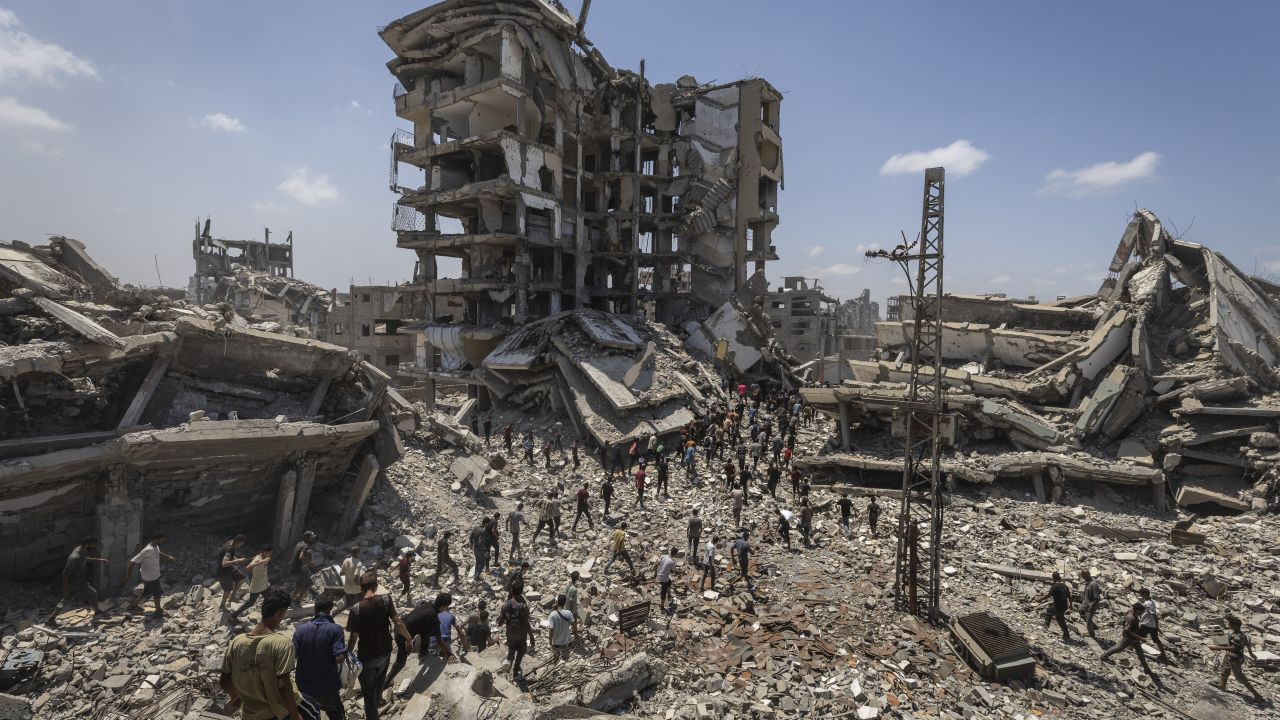Politics
Former Negotiator Warns of Challenges in Occupying Gaza City

Former US State Department Middle East negotiator Aaron David Miller has raised significant concerns regarding Israeli Prime Minister Benjamin Netanyahu‘s plan to occupy Gaza City. Miller asserts that such an operation would face numerous complexities, potentially complicating Israel’s military and political objectives.
Miller, who has extensive experience in Middle East negotiations, elaborated on the implications of an occupation during a recent interview. He emphasized that the diverse challenges include not only military logistics but also the broader geopolitical ramifications that could arise from such a move.
Gaza City, home to approximately 2 million residents, presents a dense urban environment where military operations could lead to significant civilian casualties. “The scale of the operation required to secure and maintain control over Gaza City would be immense,” Miller stated. He noted that past military engagements in urban settings have often led to unintended consequences, including increased unrest and resistance from local populations.
The situation is further complicated by the existing political landscape. Miller highlighted that Israel would need to consider its relationships with neighboring countries and international stakeholders. Any military action could provoke a backlash, not only from Palestinian factions but also from regional players who have historically opposed Israeli military interventions.
Miller’s insights come at a time when tensions in the region remain high. The Israeli government has faced criticism regarding its strategy in the Palestinian territories, particularly following escalated violence in recent months. As military operations continue, the implications of occupying Gaza City could affect Israel’s long-term security strategy.
One of the critical factors in the viability of such an operation is public opinion, both domestically and internationally. Miller pointed out that sustained military engagement could lead to increased scrutiny from global audiences, potentially isolating Israel on the international stage.
In light of these factors, Miller concluded that the feasibility of occupying Gaza City should be carefully assessed. “It is crucial for Israeli leadership to weigh the potential outcomes of this strategy against the risks involved,” he said. As discussions around Gaza City intensify, the international community remains watchful of Israel’s next steps and the broader implications for peace in the region.
In summary, Miller’s analysis underscores the complexity of military occupations in urban environments and the multifaceted consequences that arise from such decisions. As the situation develops, stakeholders will need to navigate a landscape marked by competing interests and significant challenges.
-

 Lifestyle2 weeks ago
Lifestyle2 weeks agoLibraries Challenge Rising E-Book Costs Amid Growing Demand
-

 Lifestyle1 week ago
Lifestyle1 week agoSave Your Split Tomatoes: Expert Tips for Gardeners
-

 Sports1 week ago
Sports1 week agoLiverpool Secures Agreement to Sign Young Striker Will Wright
-

 Lifestyle1 week ago
Lifestyle1 week agoPrincess Beatrice’s Daughter Athena Joins Siblings at London Parade
-

 Sports7 days ago
Sports7 days agoTyreek Hill Responds to Tua Tagovailoa’s Comments on Team Dynamics
-

 Science2 weeks ago
Science2 weeks agoTom Lehrer, Pioneering Satirist and Musician, Dies at 97
-

 World6 days ago
World6 days agoWinter Storms Lash New South Wales with Snow, Flood Risks
-

 World2 weeks ago
World2 weeks agoSwingathon Festival Draws Nearly 1,000 Attendees in Allington
-

 Lifestyle2 weeks ago
Lifestyle2 weeks agoNigeria Claims 10th African Championship Title with Victory Over Morocco
-

 Politics2 weeks ago
Politics2 weeks agoNorth Dakota Woman Dies in Lake Crash Following Highway Incident
-

 Science2 weeks ago
Science2 weeks agoTrump Administration Moves to Repeal Key Climate Regulation
-

 Business2 weeks ago
Business2 weeks agoSoFi Technologies Shares Slip 2% Following Insider Stock Sale








